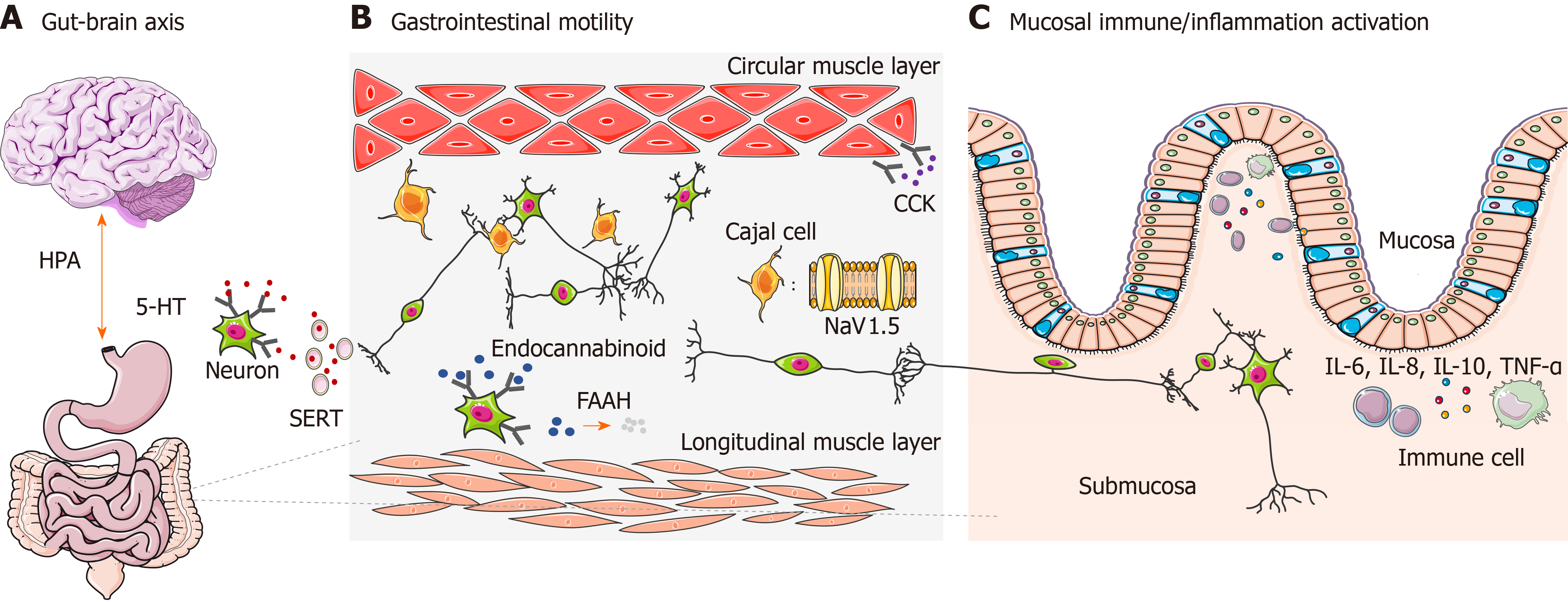Copyright
©The Author(s) 2020.
World J Gastroenterol. May 7, 2020; 26(17): 2049-2063
Published online May 7, 2020. doi: 10.3748/wjg.v26.i17.2049
Published online May 7, 2020. doi: 10.3748/wjg.v26.i17.2049
Figure 1 Genetic polymorphisms involved in several pathophysiological pathways.
A: The polymorphism of 5-hydroxytryptamine receptors, serotonin reuptake transporter and adrenoceptors influences the bidirectional brain–gut axis, which plays essential roles in altering visceral sensitivity and gastrointestinal mobility; B: Genetic polymorphism in voltage-gated sodium channel NaV1.5, an ionic channel in interstitial cells of Cajal, cholecystokinin receptors, cannabinoid receptor, and fatty acid amide hydrolase markedly regulates the motor function of the gastrointestinal tract via the myenteric plexus and smooth muscle cells; C: Genetic polymorphism modulates the level of cytokines [e.g., interleukin (IL)-6, IL-8, IL-10, and tumor necrosis factor-α] released by immune cells, which is closely related to mucosal immune/inflammatory activation and the intestinal immune and inflammatory status. HPA: hypothalamic–pituitary–adrenal; 5-HT: 5-hydroxytryptamine; SERT: serotonin reuptake transporter; FAAH: fatty acid amide hydrolase; CCK: cholecystokinin; IL: Interleukin.
- Citation: Xiao QY, Fang XC, Li XQ, Fei GJ. Ethnic differences in genetic polymorphism associated with irritable bowel syndrome. World J Gastroenterol 2020; 26(17): 2049-2063
- URL: https://www.wjgnet.com/1007-9327/full/v26/i17/2049.htm
- DOI: https://dx.doi.org/10.3748/wjg.v26.i17.2049









